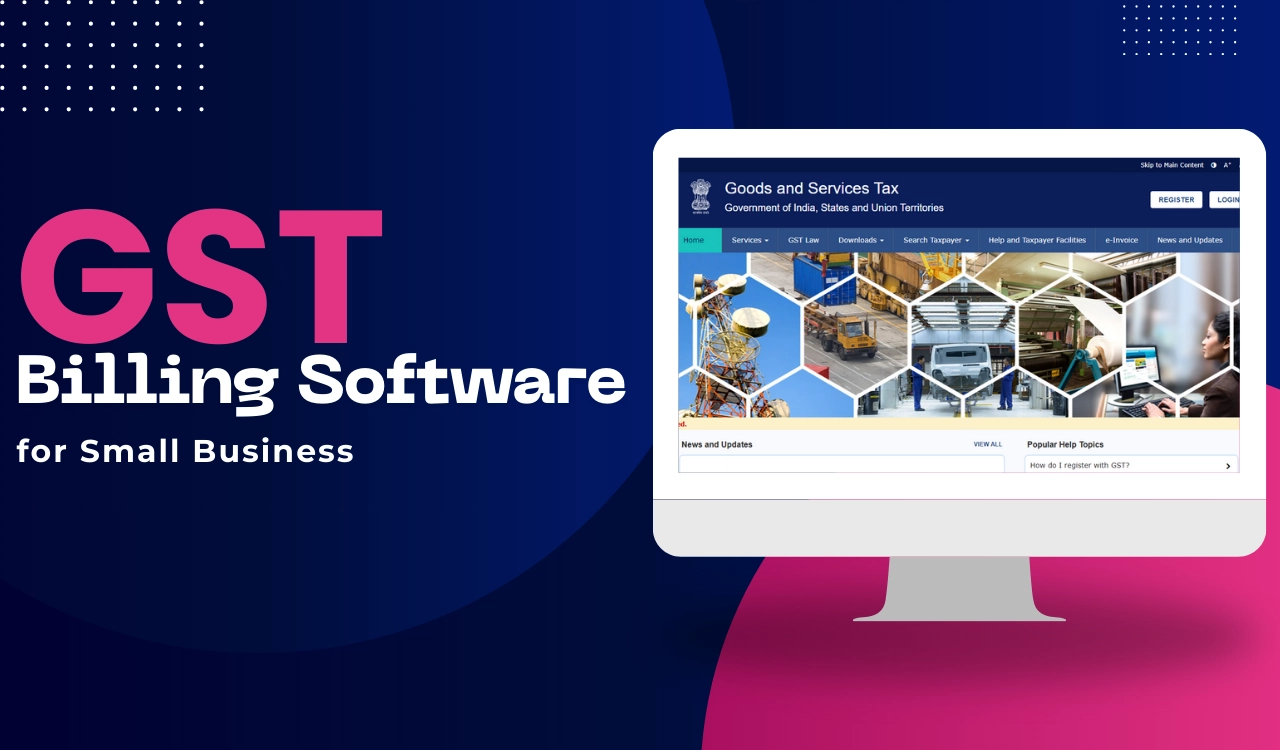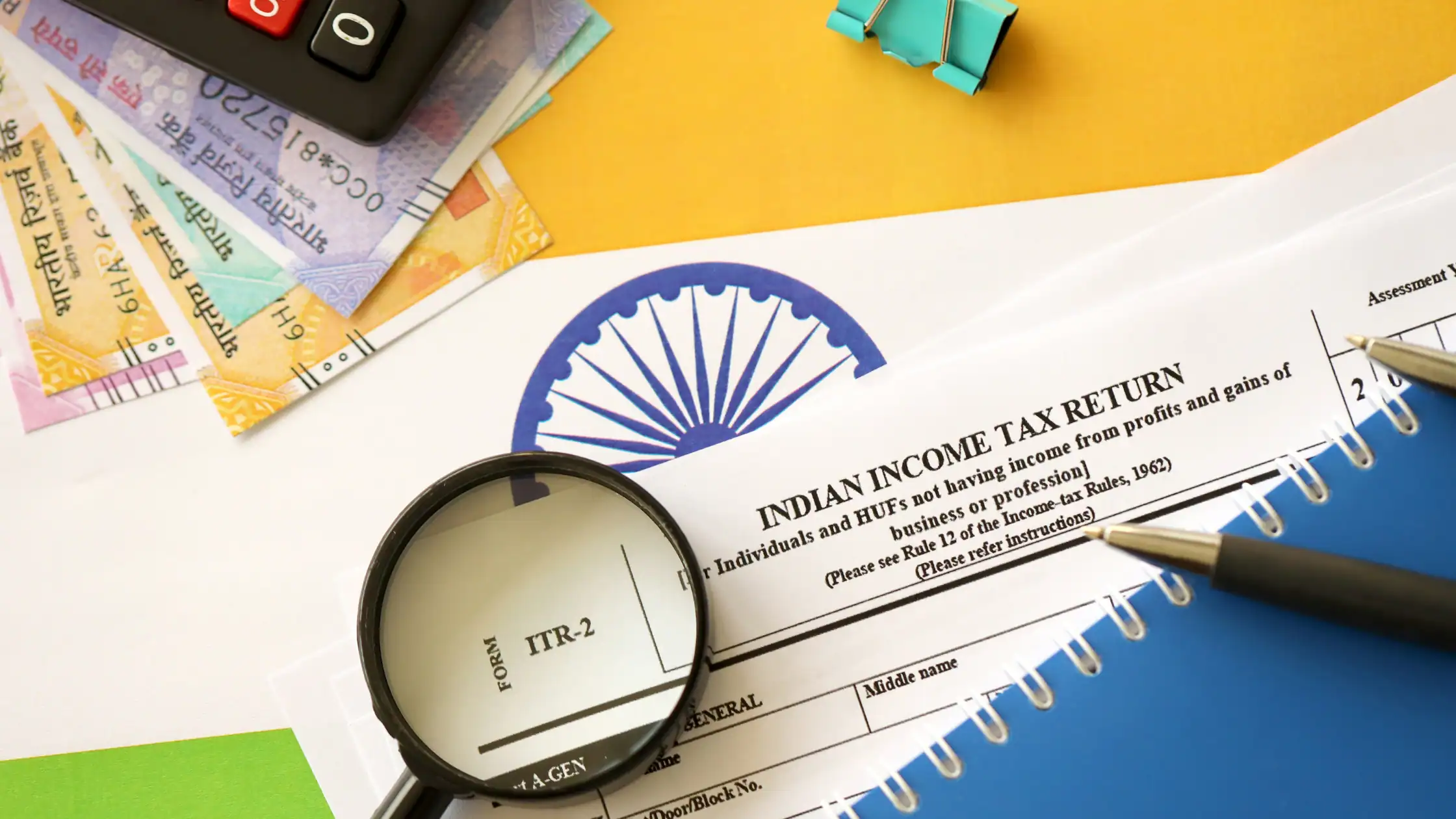
Smart GST Billing Software for Small Business Growth
Small business finance is one of the toughest parts of running a business. From creating invoices to filing accurate paperwork and following tax guidelines, there are fine details that are necessary to handle. The current business world is moving too fast for manual billing operations. Businesses require digital tools which not just enable them to do invoicing but to also ensure that compliances with GST are met. This is when small businesses will find the great game-changer in reliable GST billing software.
Why GST Billing Matters for Small Businesses
Introduction of Goods and Services Tax (GST) led to making India’s tax system equitable and transparent. But at the same time it has brought in new requirements for businesses in terms of issuance of invoices in a particular format, accuracy of calculation of taxes and digital maintenance of records. For entrepreneurs who frequently wear many hats, this can be overwhelming.
By having the top best GST billing software, you are saved from the potential errors when calculating taxes, saving you precious time and making sure that you have an invoice that is 100% GST compliant. It not only smooths over day-to-day business practices, but it also creates a level of trust with the client via professional invoices.
Key Features of GST Billing Software
For small businesses searching for the right billing software, they should take an extra look at features that aren’t initially associated with invoice creation. One provides an integrated solution with multiple functions to make financial management smoother.
- Automatic GST Working – Avoid mistakes, apply accurate tax rates.
- Invoice Maker – Generates professional looking invoices within a few seconds and provides the ability to add brand logos and information.
- Stock management – keeps track of stock and updates inventory automatically when a sale is made.
- Tax filing aid – Generates reports in GST-ready formats to help you file returns effortlessly.
- Integrates with business accounting software – Billing syncs with expenses, purchases and payments.
- Cloud billing – Allows you to access bills and reports on any device at any time.
- Secure data storage – Protects company’s financial information.
The software with such functionalities serves as a billing system and financial assistant of a developing company.
Benefits of Using Digital GST Billing Tools

Transitioning from traditional manual billing methods to digital GST billing software offers a wide range of benefits that directly impact efficiency, compliance, and business growth. For small businesses in particular, this shift not only saves valuable time but also enhances overall professionalism and builds customer trust.
Time Efficiency
One of the biggest advantages of using digital billing tools is the time saved in generating invoices. What once required manual entry and cross-checking can now be done in seconds with expert-level GST billing software. This speed allows business owners to focus on running and growing their operations instead of spending hours on repetitive tasks.
Accuracy
Automation greatly reduces the chances of human error, especially in tax calculations. By automatically applying the correct GST rates and discounts, billing software ensures compliance with government regulations. This accuracy not only prevents costly mistakes but also builds trust with clients and auditors.
Professional Branding
Invoices generated through digital billing tools look more polished and professional. Businesses can include their logo, color scheme, and other branding elements, giving clients the impression of a reliable and credible company. Well-designed invoices strengthen the brand image and improve client relationships.
Scalability
Digital billing software grows with your business. Whether you’re a small startup handling a few clients or a mid-sized company managing hundreds, the software adapts to your needs. This scalability means you don’t have to constantly switch systems as your business expands.
Deeper Understanding
With built-in reporting and analytics, business owners gain deeper insights into their financial health. Instant access to reports such as outstanding payments, sales trends, and expense summaries allows for smarter decision-making and better control over cash flow.
Paperless Process
By eliminating the need for paper-based invoices and statements, businesses not only cut down on clutter but also support sustainability. A paperless billing process is eco-friendly, reduces storage hassles, and simplifies record-keeping, making compliance and audits easier.
How to Choose the Best GST Billing Software

Choosing the ideal GST billing software goes beyond simply picking a tool that generates invoices, it’s about selecting a smart, efficient, and future-ready system that aligns with your business’s evolving needs. The right software should not only help you comply with GST regulations but also streamline invoicing, error detection, reporting, and integrations. Here are the key areas to focus on to make a well-informed decision:
Ease of Use and Quick Onboarding
GST software must be intuitively designed so you can start using it effectively without extensive training. Look for platforms that allow onboarding and basic setup within 1–2 hours, supplying immediate value with no steep learning curve.
Identify Your Specific Business Needs
Before evaluating options, create a checklist: Do you need invoicing, return filing, e-way bill generation, or integrations with inventory/ERP systems? Should the software be cloud-based? What level of data security is required? Clarity on these needs helps filter options significantly.
Full GST Compliance and Automation of Returns
Prioritize software that enforces GST compliance automating generation of e-invoices, e-way bills, and GSTR returns like GSTR-1, GSTR-3B, and beyond. The ability to auto-calculate correct amounts, apply HSN/SAC codes, and format exports compatible with GSTN is indispensable.
Smart Error Detection and Alerts
A strong GST tool should proactively flag potential errors, like mismatched tax types or missing fields—and alert the user before submission. This ensures accuracy in financial data, which is especially critical under tight compliance deadlines.
Robust Data Security and Backup
Sensitive financial data must be protected via secure encryption, backup capabilities, and disaster recovery measures to prevent breaches or data loss. Confirm that the software encrypts data in transit and at rest, and offers reliable backup routines.
Strong Customer Support and Training
Even user-friendly software may bring queries especially during critical filing periods. Ensure the provider offers responsive support through multiple channels such as phone, email, and live chat, and consider demo or trial options to assess responsiveness firsthand.
Cost-Effectiveness and Transparent Pricing
Consider different pricing models monthly, annual, or per-user and make sure pricing aligns with your needs. Compare plans that offer the most value, keeping hidden fees at bay. Trials or free tiers can help test functionality before commitment.
Integration with Existing Systems
If your business already uses accounting systems like Tally, ERP, or CRM tools, seamless integration is key to avoiding data silos. Verify that the GST software communicates easily with your current infrastructure.
Adaptability to GST Rule Changes
GST regulations and form formats evolve frequently. The best software allows for quick changes in GST rates and auto-updates of compliance modules so you’re not left using outdated logic or forms.
The Future of GST Billing in India

India’s GST ecosystem is on the cusp of transformative change, driven by policy reforms and technological innovation. The coming years promise a more streamlined, transparent, and intelligent billing experience for businesses across sectors. Here’s how:
Policy Reforms: Simpler Tax Structure & Rationalization
India is gearing up for a sweeping overhaul of the GST framework widely dubbed “GST 2.0.” This reform aims to significantly simplify the tax structure by reducing the current four-grade slabs (5%, 12%, 18%, 28%) into just two main rates (5% and 18%), with a higher 40% bracket for sin and luxury goods. These changes are expected to lower compliance burdens while stimulating consumption and economic activity. Consumer goods like toothpaste, TVs, and small cars may see sharp reductions in GST, creating tailwinds for domestic industries.
Also under consideration are expedited Input Tax Credit (ITC) refunds, particularly automatic processing for businesses, which would greatly improve cash flow for exporters and SMEs.
Moreover, debates are ongoing around mandating GST payments using India’s CBDC, the e-rupee, with tokenization proposed to enhance transparency and curb evasion.
Smart Automation: AI, Blockchain & Real-Time Filing
On the technology front, AI and Machine Learning are set to revolutionize GST billing. Expect automation in transaction classification, error detection, tax invoice generation, and even predictive tax liability analysis. The goal? Slashed manual effort and reduced compliance risk.
This dovetails with a larger shift toward real-time GST filing systems, where invoices trigger automated submissions to the NSDL/GST portal, eliminating delays and manual reconciliation.
To bolster security and traceability, blockchain technology may be integrated into GST billing. Its immutable ledger architecture can secure invoices, counter fraud, and ensure integrity.
Cloud, Mobile, and Seamless Integration
GST billing is going mobile. Taxpayers especially freelancers and SMEs are increasingly relying on mobile-optimized invoicing apps for on-the-go invoicing and real-time updates.
Parallel to this is the shift to cloud-based GST software, offering remote accessibility, secure storage, and smooth collaboration across teams. Cloud tools also enable seamless integration with existing systems like ERP, CRM, and e-commerce platforms.
Improved Security & Authentication
As GST becomes more digital, stronger multi-factor and biometric authentication protocols will be vital to safeguard sensitive data and prevent unauthorized access.
Meanwhile, data-sharing frameworks like the Account Aggregator model will enable transparent compliance and better financial insights—bridging business data with regulatory oversight.
Analytics, Virtual Assistants & Smart Compliance
Future-grade GST tools won’t just automate they will empower decisions. Expect advanced data analytics to deliver insights on financial health, tax liabilities, and business performance.
Moreover, AI-based compliance assistants are likely to emerge virtual guides that alert users, suggest optimizations, and flag compliance issues before they escalate.
Tips for Small Businesses Adopting GST Billing Software
Choose the best GST billing software that automates GST calculations, e-invoicing/e-way bill support, HSN/SAC codes and integrates with your accounting, inventory and payment systems; start with a free trial or pilot, migrate only essential data, and keep backups; train one or two staff as champions, standardize invoice templates and approval workflows, and enable role-based access for security; review pricing vs. scalability and confirm prompt vendor support and regular tax-rule updates; finally, use built-in reports to monitor receivables and cash flow so the software quickly pays for itself through time saved and fewer compliance errors.
Conclusion
For today’s entrepreneurs, efficient billing goes beyond just sending out invoices; it’s about keeping things accurate, staying compliant, and showcasing professionalism. With the right GST bill maker software, businesses can save precious time, cut down on mistakes, and concentrate on growth rather than getting bogged down by administrative tasks. Opting for the best GST billing software means giving your business a powerful tool that paves the way for long-term success. By teaming up with reliable providers like Desun Technology, small businesses can confidently adopt digital billing and stay ahead in a constantly changing marketplace.









